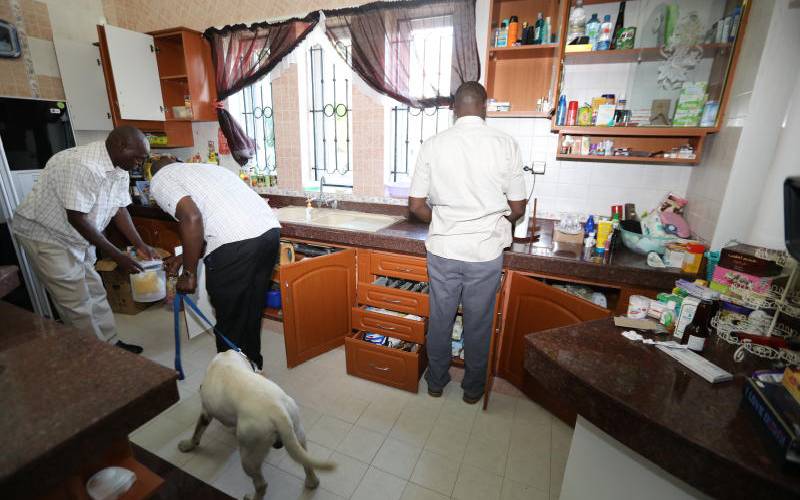×
The Standard e-Paper
Smart Minds Choose Us

The revelation that Ali Punjani had been assigned 19 Administration Police officers to guard his ritzy home in Nyali, Mombasa, is bound to elicit debate on police patronage.
How Punjani, who was branded a fugitive even as his house was ransacked yesterday, managed to retain police protection at a time the Government was scaling down security for VIPs points to his influence.